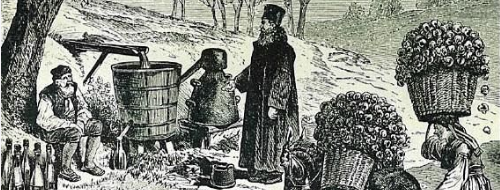ESHET-STOREP Session @ ESHET 2020, Sofia

Habits, Culture and Education: Origins and Development of an Evolutionary Perspective in Economics
Devoted to the study of institutions in the economy, institutional economics is now a major subfield of economics, one that has also a relevant impact outside the borders of the discipline, as well as on policy. With respect to orthodox economics, this perspective assumes that the economy is an open and evolving system; individuals live in an institutional milieu – that is, their environment is shaped by socially embedded rules, and their behavior is affected by their institutional and cultural situation. In view of all this, there is now considerable attention for the contribution that institutional economics can make concerning culture, education, and human capital.
The proposed session wants to discuss the possible bases for this contribution. Salvatore Spagano’s (Università di Catania) paper “Habits between Evolution and Institutions” reconstructs the main meanings of the “foundational” term ‘habit’ within evolutionary and institutional economics. Spagano highlights two fundamental characteristics of habits, namely: i) the incompatibility of a customary and habitual behaviour with a strict compliance with the principle of rationality, and ii) the intrinsically relational quality of such a kind of behaviour.
In “Culture, Evolution and the Relevance of a Veblenian framework”, Angela Ambrosino (Università di Torino) and Erkan Gürpinar (University of Ankara), re-read Veblen’s theory for purposes of reaching a more comprehensive theory of institutional change. Veblen focuses in fact on the roles of instincts and culture in the formation of habits, but his theory needs to be complemented as regards the sources and the process of institutional evolution. Contemporary evolutionary approaches come to help in this regard: dual inheritance theory and evolutionary game theory offer insights into how to link the behavior of (heterogeneous) individuals and collective outcomes, while cognitive approaches shed light on the (cognitive) mechanisms that lead to change in the habits of individuals, which is the source of change at the societal level.
A more applied reasoning concerning the link between individual behavior and institutional change is provided by Cosimo Perrotta (Università del Salento) in “The economic literature on human capital as the driving force of development”. The paper critically reviews the literature on human capital and education literature since the early 19th century, and finds in the idea that investment in human capital is the only way to foster development in the post-industrial economy its core message. After proposing a survey of such literature before the 1960s and an analysis of the debate during the welfare state, the paper focuses on the crisis-era of the welfare state itself and therefore on current times, arguing that while the de-regulated market is unable to accomplish the Western transition from the industrial to the post-industrial economy, some possible alternatives, based exactly on human capital, do exist to this unsatisfactory state of affairs.
